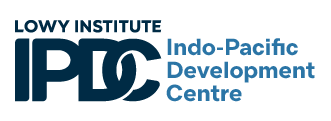The iPhone 16 has been banned from sale in Indonesia. For a rapidly growing, tech-savvy nation, this is a setback for Apple. But the Indonesian government seems determined to send a message to the big tech firm.
The ban is due to Apple’s failure to meet the Local Content Requirement (LCR) mandated by the Indonesian government. The LCR aims to stimulate domestic industries by requiring that a minimum percentage of a product’s components be sourced locally. Specifically, for the telecommunications sector, including smartphones, this requirement stands at 40 per cent.
This policy not only seeks to bolster local manufacturing capabilities but also aims to reduce dependency on imports, ultimately fostering economic self-sufficiency and creating jobs.
The Indonesian government has established flexibility in fulfilling LCR through three distinct schemes: domestic manufacturing, application development, and domestic innovation. Apple, in this instance, has opted for the innovation scheme, committing to establish a Developer Academy in Indonesia.
While this initiative represents a positive step towards nurturing local talent and innovation, it falls short of the Indonesian government’s broader ambitions. Officials are eager to see Apple invest more substantially – specifically, they expect the tech giant to establish a manufacturing facility or a research centre within the country.
Apple’s immediate challenge is clear: it must meet the LCR to officially resume sales operations in Indonesia. Currently, it has not fulfilled its investment commitment, with US$15.5 million left of its total pledge of US$110.3 million – relatively small for a corporation of Apple’s size. However, it seems likely that Apple will swiftly align with the Indonesian government’s requirements.
Currently, iPhone 16 units are still entering Indonesia via passenger baggage, with approximately 9,000 units having crossed the border and been properly taxed. Consumers can still purchase the iPhone 16 from overseas for personal use, which remains legal as long as the devices are not intended for resale.
This approach mirrors China’s historical tactics of requiring local investment and technology transfer, leveraging its sizable market to attract foreign firms.
This situation underscores the delicate balancing act that many multinational corporations face when entering emerging markets. They must navigate a complex web of local regulations while aligning their operations with corporate strategies and global commitments. This balancing act can be particularly challenging in countries such as Indonesia, where regulatory frameworks are designed to protect and promote local industries.
For the Indonesian government, the LCR is a tool aimed at strengthening local industries across various sectors, including technology, mining, manufacturing, and energy. This reflects the government’s commitment to national economic development.
However, this approach risks alienating foreign investors who may see these regulations as obstacles rather than support. If foreign companies view the regulatory landscape as overly restrictive, they might reconsider their commitment to investing in Indonesia. The risk for the country is missed opportunities for technology transfers, skills development, and job creation.
While LCR can foster domestic industries, the policy has potential downsides. One significant concern is that LCR policies can lead to higher prices for consumers, as businesses may face increased costs sourcing local materials or labour. In some sectors, this could translate into elevated prices for critical inputs, which, in turn, can stifle productivity and reduce export competitiveness.
Moreover, this approach mirrors China’s historical tactics of requiring local investment and technology transfer, leveraging its sizable market to attract foreign firms. Yet Indonesia must tread carefully. Overly burdensome regulations could deter foreign investment, undermining the very economic development it seeks to achieve. Balancing local growth with an inviting investment climate will be crucial for Indonesia’s future success.
With the recent shift in Indonesia’s political landscape, the LCR is likely to evolve further under Prabowo Subianto’s leadership. Prabowo has expressed a commitment to prioritising downstreaming and industrialisation, indicating that he will advocate for policies aimed at enhancing local manufacturing and innovation. While this focus could result in stricter regulations, it may also present opportunities for foreign companies to invest in local operations and form mutually beneficial partnerships.
The coming months will be critical not only for Apple but also for the future trajectory of investment in Indonesia. If managed effectively, this situation could create a robust ecosystem where global firms collaborate with local industries, fostering innovation and economic growth. Such an outcome would align with Indonesia's aspiration to become a developed nation by 2045.


